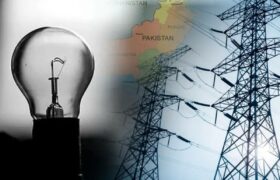Internet has gradually taken over control of human’s life and has become an important facet of our daily life. It has emerged as an important platform for marginalized communities where they can raise their voices. It has played a central role in various modern uprisings and social movements such as Arab Spring. Social media platforms are now used to highlight various issues and increase pressure on governments to affect change in various policies. However, Social media spaces are also increasingly used for harassment where various tactics are used against victims.
In Pakistan, online harassment and violence is more prevalent but it is mostly ignored. Women are daily subjected to online harassment, rape threats, cyberstalking, blackmailing, defamation and much more. Irrespective of a gender, the victim of online harassment can also be a male, though, females in our society are more vulnerable to online harassment. Cyber Harassment against women is also named as Cyber-sexism or Cyber-misogyny.
In this era of technology and quick access to the Internet, people can easily gain access to personal data. Most of the people in Pakistan have a misperception that stealing of personal data is not a Cyber Crime. However, according to the National Response Centre for Cyber Crime (FIA), “Any activity commissioned via computer, digital devices and networks used in the cyber realm, and facilitated through internet mediums is a punishable crime. It can include the distant theft of information belonging to an individual, government or corporate sector through criminal tress-passing into unauthorized remote systems around the world. It may include stealing millions of rupees from online bank to harassing and stalking cyber users”.
People in the region of KP are less aware of cybercrime and cybersecurity as many women do not report cases of online harassment due to cultural taboos and family honour. Living in a patriarchal society, women mostly avoid reporting such cases to the authorities and the abusers or harassers normally goes unpunished.
The basic motive of online harassment differs from case to case, but mostly the victims are targeted to humiliate, embarrass, threaten, extort, scare, silence and in extreme cases provoke mob attacks or malicious engagements.
Talking to an online harassment victim, Sarah Mukhtar who is a young mother of two and was an active proponent for women rights said that “I had no idea that my views will generate so much intolerance that not only men but women will also harass me.” She further added, “I used to get threats and abusive messages on Facebook and Instagram daily, few have even stolen my personal pictures from social media accounts, threatening to edit them in order to malign my image, simply because they do not agree with my views.
As per the recent report of Digital Rights Foundation (DRF), a Pakistani advocacy and research NGO, claims that 40% of females on the internet in Pakistan have faced online harassment via social media and 72% of women are not even aware of cyber harassment laws.
Many women in Pakistan opt for self-censorship as they are afraid of online harassment, 70% of women in KP are reportedly reluctant to use or post their pictures online. While talking to a human rights activist, Nadia Bangash, she said that “due to nature of my work, I get a lot of online trolls. I wanted to report the harassers but my family stopped me from doing so and advised to limit my friends list and avoid sharing my thoughts openly. The self-censorship is depressing, seeing the culprits live their lives freely”. She further added, “Owing to family and social pressure, I had to ignore the harassment”.
Pakistani women daily experience online harassment but mostly chooses to stay silent due to family restrictions and less chances of implication. Hira Khalil, a law student adds, “Without my consent, my few personal intimate images and videos including few doctored ones in compromising positions were spread on social media. I, initially thought to reach out for help, but I was hesitant as I did not trust the authorities”. Adding to this she said, “I gathered the courage and filed my complaint in cybercrime cell but then after a year I gave up since it was a time-consuming procedure and the harm was already done”.
There are venues in Pakistan to protect women online like the cyber harassment helpline or FIA cybercrime cell, but the cybercrime laws in Pakistan are mostly ineffective or weak, whereas Prevention of Electronic Crimes Act, 2016, binds to make strict equivalent punishment for online crimes. The state is responsible for guarding the honour of people as per the Constitution’s Article 14. Online crimes against women threaten their identities, put their prestige at stake and affect their repute.
Women like males have rights to live freely in the society without the fear of abuse, violence or assault including online harassment. Online harassment against women cannot be completely eliminated however, authorities can make the cyber space safer by effective implementation of cyber laws and strict punishment for harassers.
*Names have been changed to protect the privacy of victims.





